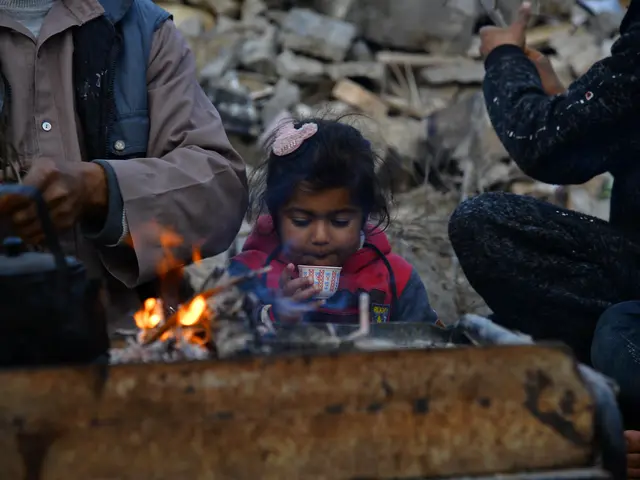The United Nations Relief and Work Agency (UNRWA) warned on Monday that the humanitarian situation in Gaza is deteriorating and consequently increases its burden to carry on with its humanitarian aid it provides to the populations.
UNRWA officials had earlier stated that the global agency, under such circumstances, "is not looking for a better quality of life in the Gaza Strip, but only wants to keep the populations alive."
Israel had imposed a tight blockade on the Gaza Strip, a home for 2 million people, right after Islamic Hamas movement seized control of the coastal enclave and routed the security forces loyal to President Mahmoud Abbas in 2007.
Over the past 13 years, due to the Israeli blockade and an internal Palestinian division, rates of poverty and unemployment have been increasing and reached its peaks at the end of 2019, according to a report by the Gaza Chamber of Commerce.
The report said that rates of unemployment in the Gaza Strip are the highest in the world, where it reached 53 percent, while poverty grows up to more than 50 percent, adding that 80 percent of the population depend on humanitarian aid.
UNRWA has been providing health, education, food supplies and humanitarian aid to more than 5 million Palestinian refugees living in the Gaza Strip, the West Bank, Jordan, Syria and Lebanon.
"The situation in the Gaza Strip is worsening amid a severe financial crisis that UNRWA is passing through after the United States cut two years ago the 360 million dollars it used to pay every year to UNRWA," said Adnan Abu Hasna, a media advisor for UNRWA in Gaza.
He warned that "the situation in the Gaza Strip is totally collapsing at all levels and aspects of life," adding "this would increase UNRWA's responsibilities and challenges to serve the populations."
Abu Hasna clarified that UNRWA remained the only international organization that provides humanitarian aid to 1.2 million refugees in the Gaza Strip, adding "we can't employ every unemployed citizen in Gaza."
Besides the blockade, Israel had waged three large-scale military offensives against the Hamas-ruled Gaza Strip. The longest was in the summer of 2014, which lasted for 50 days and left severe destruction in housing and infrastructure.
Ahmad Abu Holli, member of Palestine Liberation Organization (PLO) Executive Committee and in charge of the Palestinian refugees' affairs told Xinhua that there is a severe financial shortage in UNRWA's budget.
"To avoid the danger of deficiency, UNRWA is in need for intensifying and increasing the international donations in order to carry on with providing its services to the Palestinian refugees," he said.
Meanwhile, Jamal al-Khodari, chairman of the Popular Committee for Ending Gaza Siege said that the warnings that UNRWA had recently released "is ringing a bell that the situation in the Gaza Strip is so difficult."
"The international community is called to increase its financial donations in 2020," al-Khodari said, adding "if this doesn't happen, the global agency won't be able to bear the responsibility and carry out its duties."
Al-Khodari, who is also an independent lawmaker in the Palestinian Legislative Council (PLC) stressed that improving UNRWA's financial situation will have a clear positive impact on the situation in the Gaza Strip.
UNRWA was established in 1949 to provide humanitarian aid, health, education, social services to Palestinian refugees.
(CGTN)
 简体中文
简体中文

